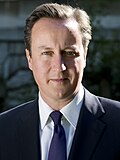European Parliament election, 2009 (UK)
|
|
|||||||||||||||||||||||||||||||||||||||||||||||||||||||||||||||||||||||||||||||||||
|---|---|---|---|---|---|---|---|---|---|---|---|---|---|---|---|---|---|---|---|---|---|---|---|---|---|---|---|---|---|---|---|---|---|---|---|---|---|---|---|---|---|---|---|---|---|---|---|---|---|---|---|---|---|---|---|---|---|---|---|---|---|---|---|---|---|---|---|---|---|---|---|---|---|---|---|---|---|---|---|---|---|---|---|
|
|||||||||||||||||||||||||||||||||||||||||||||||||||||||||||||||||||||||||||||||||||
|
|
|||||||||||||||||||||||||||||||||||||||||||||||||||||||||||||||||||||||||||||||||||
|
All 72 of the United Kingdom's seats in the European Parliament |
|||||||||||||||||||||||||||||||||||||||||||||||||||||||||||||||||||||||||||||||||||
| Turnout | 34.7% |
||||||||||||||||||||||||||||||||||||||||||||||||||||||||||||||||||||||||||||||||||
|
|||||||||||||||||||||||||||||||||||||||||||||||||||||||||||||||||||||||||||||||||||

Colours indicate winning party. *Seat change has been adjusted to allow for direct comparison with the results from the 2004 election.
†(including 1 UCUNF) ‡Notional results |
|||||||||||||||||||||||||||||||||||||||||||||||||||||||||||||||||||||||||||||||||||
|
|||||||||||||||||||||||||||||||||||||||||||||||||||||||||||||||||||||||||||||||||||
The European Parliament election was the United Kingdom's component of the 2009 European Parliament election, the voting for which was held on Thursday 4 June 2009. The election was held concurrently with the 2009 local elections in England. In total, 72 Members of the European Parliament were elected from the United Kingdom using proportional representation.
Notable outcomes were the significant drop in support for the Labour Party, who came third, and the UK Independence Party (UKIP) finishing second in a major election for the first time in its history, coming level with Labour in terms of seats but ahead of them in terms of votes. This was the first time in British electoral history that a party in government had been outpolled in a national election by a party with no representation in the House of Commons. The BNP also won two seats, its first ever in a nationwide election. It also marked the first time the Scottish National Party (SNP) won the largest share of the European election vote in Scotland, and it was the first time since 1918 Labour had failed to come first in a Welsh election. It was the Democratic Unionist Party's (DUP) worst ever European election result, and also the first time an Irish Republican party, Sinn Féin, topped the poll in Northern Ireland.
The United Kingdom elected 72 Members of the European Parliament using proportional representation. The United Kingdom was divided into twelve multi-member constituencies. The eleven of these regions which form Great Britain used a closed-list party list system method of proportional representation, calculated using the D'Hondt method. Northern Ireland used the Single Transferable Vote (STV).
...
Wikipedia




